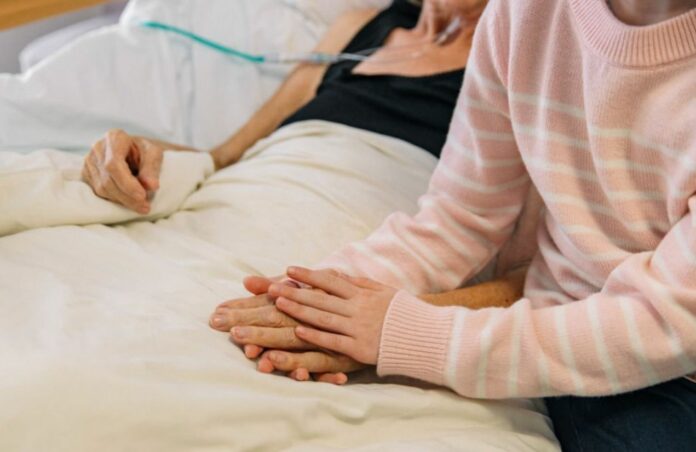There are several potential underlying causes of strokes. The greatest risk for stroke is high blood pressure. Foods and beverages with a lot of sugar may also be dangerous since elevated blood sugar levels also carry a significant risk.
A new study of almost 3000 participants discovered shocking evidence that hot weather – even a 1°C rise in temperature – raises your likelihood of suffering a stroke.
“Climate change and global warming are worldwide problems and stroke is a leading cause of death,” remarks study author Dr. Ryohei Fujimoto.
The findings suggest that older persons may be more vulnerable to stroke after being exposed to hot weather.
To protect individuals from this crippling and sometimes fatal illness, preventative measures like “insulated housing and air conditioning” should be prioritized by the public health system.
It’s unclear how high temperatures increase stroke risk.
This research looked at the connection between elderly people’s emergency room visits for stroke and heat exposure.
In the study, 3,367 people from Okayama, a city in western Japan, took part. Participants were 65 or older and were sent to emergency rooms between 2012 and 2019 for the development of a stroke during and a few months following the rainy season.
The Okayama weather station, which is run by the Japan Meteorological Agency and the Okayama Prefectural Government, provided hourly data on outdoor temperature, relative humidity, barometric pressure, and the average atmospheric concentration of particulate matter less than 2.5 m in diameter (PM2.5).
Analysis of the relationship between temperature and stroke was done during the rainy season as well as one, two, and three months later. Utilizing a time-stratified case-crossover study design, the researchers compared, for each participant, the temperature on the day of the week on which a stroke occurred (e.g. Monday) with the temperature on the same day of the week on which no strokes occurred (e.g. the remaining Mondays) within the same month. This eliminated the possible bias introduced by factors such as demographics, time patterns, seasons, and days of the week.
One month following the rainy season, the researchers discovered, the link between temperature and stroke was at its highest.
After controlling for relative humidity, barometric pressure, and PM2.5 concentration, there was a 35% higher incidence of emergency visits for stroke for every 1°C rise in temperature.
When each kind of stroke was examined independently, a temperature rise of 1°C was linked to a higher risk of haemorrhagic stroke of 24%, ischemic stroke of 36%, and transient ischaemic attack of 56%.
The researchers performed a second study to see whether the “impact modification” was related to the wet season.
Effect modification means that the link between the exposure (temperature of hot air) and the outcome (visit to the emergency room for a stroke) may be different depending on a third variable (during and after the rainy season).
For this analysis, the rainy season was used as a point of comparison. Once again, the connection was most robust in the month after the end of the rainy season. For every 1°C increase in temperature throughout the reference period, the risk of stroke was 31% higher.
“The results of the second analysis,” according to Dr. Fujimoto, “suggest that environmental conditions immediately after the rainy season intensify the relationship between hot weather and stroke. In addition to high temperatures, this period is characterised by an increase in sunshine duration and less rain, which may explain the findings.”
“Our study suggests that older adults should try to keep cool during hot spells,” he adds, “for example by staying indoors during peak temperatures. Public health systems can help by providing cool spaces for members of the public to escape the heat during the hottest months of the year.”
